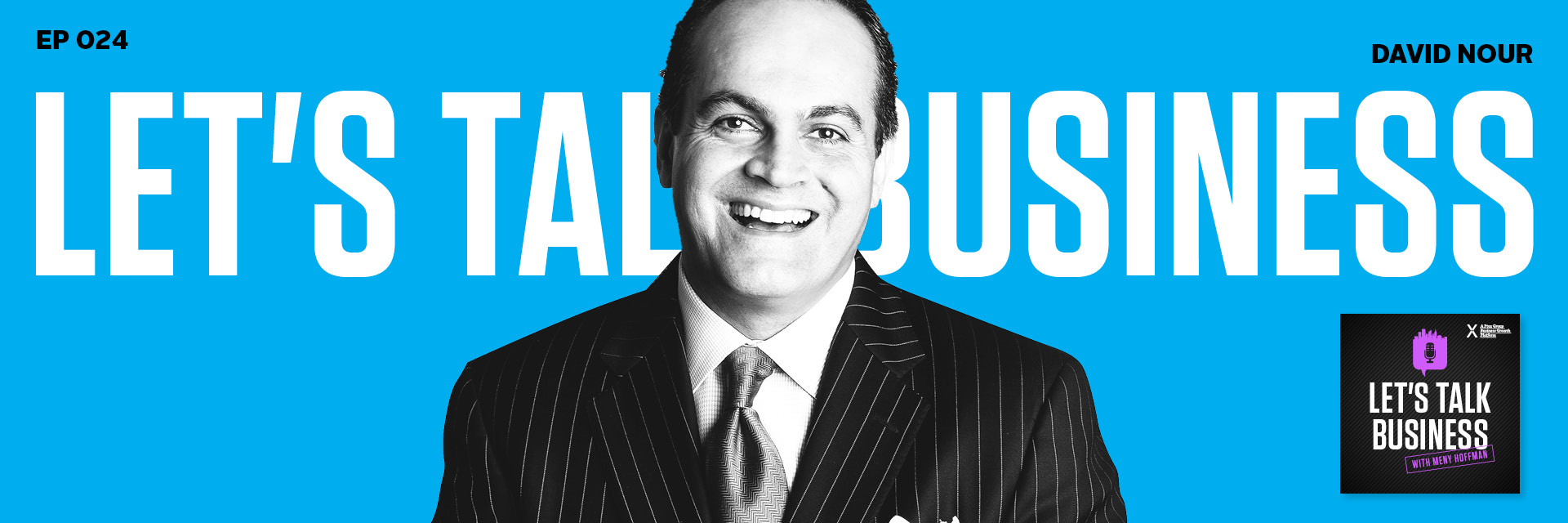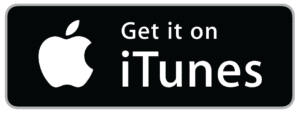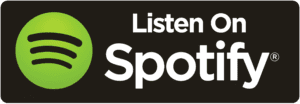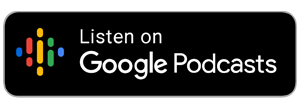David Nour of the Nour Group discusses the power of building relationships in business—and some no-nonsense, practical tips for doing it right.
Whether we like it or not, we all need to build the right relationships in order to survive in the world of business.
Listen and enjoy!
Listen to the podcast here:
Download the audio file here.
The Power of Building the Right Relationships—with David Nour
Our guest is David Nour. David has spent the past two decades studying business relationships. He helps leading organizations, from entrepreneurs to Fortune 100 companies, learn how to leverage the value of the greatest off-balance-sheet asset, their relationships, to drive strategy, innovation, growth and profitability. He is an internationally known thought speaker and author of ten books, translated it into eight languages, including best-selling Relationship Economics and ConnectAbility.
In our interview, David and I discussed the power of building relationships. David explains the number one reason why companies fail in building proper relationships. David also breaks down the steps on how to identify who are the people in your life or your business that you could add the most value at. Finally, pay close attention to how David shares the myth about relationships. There’s so much value in this episode and there’s so much practical no-nonsense advice. Without further ado, here is my interview.
—
David, thank you for joining me.
Thanks for having me.
Your personal story is fascinating. You moved to the United States as a young boy with $100 in your pocket. Now, you are one of the most sought out keynote speakers on building a financially successful business. For our readers, take us back to the beginning.
I’m originally from Iran. My mom and dad are retired educators in Persian literature and Persian history. The old regime used to have an exchange program. In the mid-‘70s we went to Kuwait. We lived and traveled all throughout the Middle East. The revolution happened and they went back to take care of their siblings and elderly parents. But they had the foresight to realize there wouldn’t be a whole lot of future for me back in Iran.
I came to the US, May 23rd, 1981 with a suitcase and $100. I didn’t know anybody, didn’t speak a word of English. I landed at JFK with the badge around my neck, “Put this kid on an Eastern Airline flight to Atlanta and he doesn’t speak a word of English.” I was a teenager, I came here and finished high school. I got my Eagle Scout and pursued both a personal growth journey and a professional one with undergrad and grad school. The early part of my career was a lot of technology, consulting, private equity and then for the last years, I’ve been blessed, I’ve been on my own.
Sometimes people read over their whole bio to set the tone. What you said is that some people will use every single excuse not to achieve something.
I’m fascinated by our political climate and all the conversations about immigration and it’s such an important topic. I’m a first-generation immigrant, last time I checked there’s not a whole lot of American Indians walking around. We are all immigrants from somewhere and the law-abiding tax-paying ones that come here legally, they still believe in the American dream. I’m a big believer of, “Education is something no one can take away from you and nobody owes you anything.” Your work ethics speak a lot of volume about who you are and where you want to go and a lot of those things, I genuinely believe are phenomenal. Learning opportunity is for all of us.
You’re a best-selling author and you speak on large stages a lot about relationships. As a starting point, where did you drive into that piece in understanding that that’s such an important part?
[bctt tweet=”The bigger the gap between who you really are and who you pretend to be, the more exhausting life becomes. ” username=””]
If you or your audience members have ever traveled or if they’ve lived and worked abroad, this next comment is going to resonate with them which is, the rest of the world builds relationships first from which they do business. It may be a different time and a different place, but my dad still goes to the same butcher his dad went to and the same baker. I wrote about this in the Relationship Economics book, I didn’t get it then but I certainly get it now. I was 5 or 6 years old doing Friday errands with my dad. He didn’t just grab what mom wanted to cook or what we needed at the house on Friday errands, he also had a relationship list. We went out and saw the people that he wanted to make sure he nurtured and he connected with on a regular basis.
A lot of it comes from my DNA, comes from my background, comes from the part of the world that I was born and raised in and understands that that’s such a critical component. The other thing that I’ve seen along those lines is that common sense isn’t common practice. We all know that relationships are important, yet we meet people that on a daily basis are focused on the transaction. Only if the transaction part works still think about, “Maybe I should spend a little more time getting to know this person or investing in that relationship with them.” Unfortunately, that’s where a lot of disconnects come, when we go to places and people don’t look like us, sound like us, or come from our backgrounds.
The reason why I wanted to have you on the podcast and explore and speak more in-depth about this topic is the concept of relationships. Many times we look at the next shiny object, what could we do? Which medium can we use? Which platform will look good? It goes back to the basics. Business is being done with relationships for as long as we can remember and that doesn’t change. Why keep on looking at all kinds of tactics, how to lure people in with this funnel, that type of gimmick, and so on and so forth, when you could go through the regular way which is building those strong relationships.
I started my career in technology. I’m passionate about technology. I’m fairly active on various social channels. I deeply believe with a plethora of these digital channels that are all around us, we’re often connected. We connect with people on Twitter, LinkedIn, Facebook, Instagram and YouTube and whatever, but we’re not connecting, we’re not engaging, we’re not influencing. We’re seldom adding value. To many people, social media has become their personal billboards, “Let me tell you how great I am and let me tell you all the great stuff I’m doing,” versus, “How do I create an opportunity to add value? How do I create engagement? How do I influence their thinking and call to action?”
In a respectful way, “How can I provoke them to think differently versus the status quo that’s so much all around us?” You are exactly right, all the different organizations or product and service sellers that want to build funnels and want to take people through 75 steps and let me drip and nurture this campaign and that thing. I’m like, “Are you launching a NASA satellite? What if we went back to building relationships?” I’m genuinely getting to know people and finding out what their challenges are and how can we make them the hero of the journey? We come alongside them as their guide, come alongside them as an enabler of their success.
This is such a valuable point. Technology has its place and it has its benefits and the same as with social media, it has its place and it has benefits. If you could use those platforms and the technology in all your marketing initiatives, all to subsidize and support the relationship that you’re building then it’s a win-win for everybody.
I don’t know about you, I still see people where their actions and behaviors are not aligned with what they say. We see this inside organizations and we see it outside. People are our biggest asset. First hit to the economy, we lay off a whole bunch of people. We love our customers, “How can we screw them out of another 10% margin?” Their verbal and their behaviors or their functions and tasks and what they do are not aligned. Like a family, if it’s dysfunctional on the inside everybody sees it and people sooner or later will see that what you say really isn’t what you mean.
I was at an event and then after the event, somebody came over to me and he started talking to me. In the middle of the conversation, out of the blue, he says, “You sound in person just as how you sound on LinkedIn.” I asked him, “How should I sound?” People are building these different personas.
I would submit to you that in today’s day and age with all the technology that’s all around us, that authenticity matters more than ever before. Regardless of your faith or your direction, our pastor says, “The bigger the gap between who you really are and who you pretend to be, the more exhausting life becomes.” It’s also true in business. How you’re perceived that truly that brand promise versus the brand equity that people experience, the bigger that gap the more exhausting, the more effort, the more resources, the more cycles you need to spend to make up for that gap. Versus can I have a voice? Can I stand for something? Can I be candid? Can I be real online as I am hopefully in person? That’s what people appreciate, that’s what they want to take away.
Let’s dig in deeper. This is such an important topic and I want to get to as many practical pieces of advice from you on this topic for our listeners. Before I dive in to get to the solutions or even how to improve on relationships, what would you say is the number one reason why people do relationships wrong?

Unfortunately, it’s easy to point to transactional pressures. We all have metrics, either self-imposed or imposed on us. We want to sell more, we want to launch more products, we got to do it faster, we got to do it cheaper and we got to do it with fewer people. I can put all that in a bucket of transactional pressures. Those pressures force us to do things that are a pennywise and a pound-foolish. How quickly can I get there? Versus, can I do it right? We all want more, we want more customers.
Relationship Economics was book number one, Co-Create is book number ten. In Co-Create, I wrote about and I talked about the Jerry Maguire Business Model. Meny, you may want to put this up on #Crazytalk, is there an opportunity for us to work with fewer clients, but can we create a deeper impact in their business? Can we add so much value that they point to us, they look at us as a huge enabler of their success.
Look at what you’re doing, not only is it more profitable work, not only is it a lower customer acquisition cost, but you’re going to spend a lot of fewer calories and cycles trying to serve those who already know you. They like you, trust you, believe in you. You’ve got a track record. Yet we lose business in going deeper and wider in our existing clients because we’re busy chasing new ones. If you focus less on the transactional and maybe a little bit more on transformational, it could be more profitable and it could be more efficient, and you could spend less cycle doing that.
I didn’t read all of your books on Relationship Economics which was the eye-opener on this topic. Explain to the audience a little bit about, first of all, even coining the terminology of Relationships Economics. Let’s go in a little bit deeper into it.
I’m in the process of writing the third edition of the book. We’ve sold about 50,000 copies of it and I’m often asked, “What is it? Where did it come from? What does it mean?” The biggest comment I continue to hear from people is that relationships is the soft thing, everybody knows it’s important, everybody knows it’s valuable. What I wanted to do was, combine the soft idea of engaging, influencing, relating and all those things that we know are important with little bit harder, a little bit more quantifiable, little more substitutive topic.
The overarching umbrella we call Relationship Economics is comprised of three things. If you lead your contacts, if you engage your contacts with value-add, and if that value add is unique and they genuinely feel—you can’t tell them this—that they’re better off because of you, we call that a relationship currency. What you’re doing is you’re exchanging relationship currency. And a good way to think about it is like cash, it has immediate value. It also has a shelf life, because if you invest in somebody in that relationship, they may or may not remember you 6, 9, 12 months later.
When you do that consistently over some period of time, and the fact that you added value and you’re recognized for that value creation, you start to build what we call your reputation capital. Now, Meny is known for something before he even walks in the room or Nour is known for something for what the value is created. I would submit to that our name is often our biggest brand, it’s our biggest asset. The logo on our business cards or the geography may change, but for most of us our names remain pretty consistent throughout our lives. That professional setting, that name, that repute has enormous value. Over time, the sum of all that reputation capital becomes what we call your professional net worth.
If you think about your personal net worth, you have relationship assets, you have relationship liabilities. What is that professional net worth in the market you serve today, in the market you want to serve in the future? In a nutshell, what I’m desperately trying to get audiences to think about is that, beyond the importance of relationships, they also have significance. That significance is derived from being more intentional about the relationships you choose to invest in. It’s a choice and it’s an investment, being more intentional and being more strategic. Where should I add value? Where can I add value? Who’s the right fit for me? Who’s not the right fit for me? In the process, more quantifiable in the investments you choose to make. We don’t make investments in any other part of our life as haphazardly or as carelessly as we seem to do with relationships.
Would you say that one of the reasons why people don’t look at it that way is because building relationships is more long term versus doing a transaction which is short term?
No question. And a big part of my world is trying to convey to people, I’m not trying to teach you how to manipulate people or how to keep score or how to do tit for tat. But, fundamentally, sociologists tell us that an average individual can proactively manage about 100 to 150 relationships. If you believe my notion, that relationships are an investment of time, effort and resources, the million-dollar question is, which ones? Who are you going to focus on? The people you’re ignoring, somebody else is paying a lot of attention to. When I say becoming more intentional, do you have a target relationship list? When I say more intentional, do you proactively and in regular cadence reach out and add value to them? Not just calling somebody, “Charles, I want something,” or, “Steve, can you do something for me?” Where can I add a unique value that sets me apart from everybody else in that relationship ecosystem?
Let me ask you a follow-up question on relationship building in general. You have done this for a while, in the trenches so to speak, with your books and speaking in large stages and coaching leaders. Is there any change to the relationship in today’s digital world?
The answer is yes. And, unfortunately, my experience is it’s less of a positive one. We are increasingly taking the path of least resistance. You hear this all the time, “I’ll send somebody an email.” How do you know they got it? How do you know it didn’t go in the spam folder? How do you know they had a chance to open it? We’re all busy and how many emails do you get a day? Conversely when I ask people, “How many hand-written personal notes did you get today?” I asked them, “How many did you send out?” This is the crazy part; we intellectually understand that relationships are important. We know that if I send a handwritten note to somebody, it’s going to set me apart from everybody else that, A) Never follows up or B) Just sends an email.
I have a conversation with our team on a regular basis. We’re blessed to have some young people on our team as well and is that an age thing as much of a mindset, “I sent him an email.” I said, “What if you picked up a phone and called them?” I used to have a manager who’d say, “Buy the airline ticket, get on a plane and go see them.” I’m a huge believer in technology, we’re working on some AI and machine learning projects for clients. I love what technology is capable of. Meny, you and I grew up in the mindset that that’s never going to replace you and I meeting in person. We’re shaking hands and investing that time, effort and resources and getting to know each other, in function with how can we work together.
I’m smiling because I don’t like to be a micromanager in our office, but when I need to step in, it’s to say, “This deserves a phone call, call that person. Don’t send an email, have a conversation with that person.”
There are ways you can leverage technology. I probably have upwards of about twenty web meetings. When I turn on my webcam and I ask the clients to do the same at least we could see each other. You can’t see them rolling their eyes in an e-mail, you can’t see them distracted with the grocery list in our conversation. Web meetings help. My most valuable relationships to this day, I make a point of at least touching base with value-add on a consistent basis, making sure I make time to go see them. You and I travel, and we all do, instead of flying in for that one meeting, could you go earlier? Could you go see some of those relationships that you perhaps have neglected or you haven’t touched base with in a while? Use me and use this podcast as an excuse, “I heard this podcast about business relationships and it dawned on me that I haven’t done a good job staying in touch with you.” You can’t do that for a thousand people, who are the most valuable? Who are the most relevant? Who are the most critical relationships where you can add value? Focus on those and do fewer well, versus a whole lot of them with just I touch them.
What I heard that is worth repeating for our listeners to pay attention and start doing more of it which is, it’s not going to happen if you’re not intentional. We live in such a fast-paced environment which is all about transactions, where you want to get onto the next phone call, the next meeting, the next so on and so forth. At one point, if you’re not intentional, it’s not going to be there. That proves the point that you mentioned about how’s there’s a limit to how much we could do.
Let me build on that, I like practical pragmatic ideas from these podcasts. For your audience, it’s as simple as, sit down and make a list of you’re A, B, C relationships. Let’s say, ten in each category. A is who’s most relevant to you today? Who is most relevant to your success? Who do you believe you can most help where you can add value? B is the next group and C is the next group. It should all fit on one page. Print that list out, carry it with you. Print that list out, put it up in your cube or put it in your office and simply ask, “What did I do to add value to that list? Not that I call them to pester the crap out of them for something. Not that I call them to ask for something or want something. What did I do to add value?”
It goes back to Adam Grant from Wharton who’s written a book called Give and Take. It’s consistent with my next comment which is, there are three types of relationship builders, givers, God bless Mother Teresa, God bless these people that just altruistically give. They get something euphoric from giving, they love giving, they give all the time, God bless them, I admire them. My challenge is we can’t all be givers because I don’t know about you, I’ve got something called a mortgage. Number two are takers, we meet these people all the time, the only reason they call is when they want something, the only reason they reach out is they want something. I don’t know if you’ve been around anybody with any kind of addiction. We make excuses for them and what we’re doing is, whether its alcohol or drugs or whatever and family and friends, we make excuses for them. What we’re doing is we’re enabling that behavior.
If people only call you when they want something, and we all want to be nice and we want to help and you keep giving, what you’re doing is you’re enabling them to keep asking. I don’t know about your bank, my bank will not let me make $100 deposit and get $1000 in return, yet people ask us for favors every day when they haven’t earned the right to do so. Givers, takers, the last type of relationship is investors, who fundamentally understand, it’s a lot easier to have your hand out if you start by giving a hand. I coach people to reciprocate first. That list of relationships, find ways to add value and those who get it should do three things, they’re going to say thank you so gratitude is number one. Number two is, in some ways reciprocity, what can I do to help you? Number three is, they’re going to pay that forward. They’re going to do something of value for somebody else.
One of the things we do with this podcast we call it no-nonsense advice and that’s why I always try to bring guests that could deliver it. Both systems, understanding the three types of people and that A, B and C list and always looking back to that list will definitely put things in perspective as far as where you are and how you want to advance that.
I want to shift the conversation a little bit, we spoke about relationships with clients. Even leaders with their team or teams within themselves, between the team members, how do you see that with your experience? How can you speak about that a little bit?

This is year eighteen of my business and to this day there are a lot of myths and misperceptions about relationships. One of them is that relationships are purely external: customers, partners, investors and media, everybody outside this place. One of the most valuable relationships that you can focus on is your intra-company relationships. Can we please stop sending text messages to people that work two offices down the hall from us? Get up and go there. Leaders who intentionally invest in and spend time, quality time and build and nurture relationships inside the organization, we’ve proven outperform their competitive peers. They’ve created an environment, whether it’s an entrepreneurial DNA regardless of the size of the organization or a culture that genuinely believes in innovation and they’re constantly are iterating if not innovating, those are the foundation of all great relationships.
I want to give you a practical example. John, this morning didn’t wake up and decided to be difficult. John’s wife was diagnosed with breast cancer. Do you have the relationship for John to come and talk to you or are you still worried about the next project or the next sale or the next transaction? Most research that I’ve found, including from Gallup, says, “The number one reason most people leave a company isn’t because of pay, it’s because they don’t believe they belong. They don’t believe their ideas are heard. They don’t believe they matter. They don’t believe they make a difference.” That’s your number one reason for voluntary attrition, where people are leaving. Maybe it’s time to pay a little more attention to what we are doing to identify, build, nurture the right relationships that are collaborative, that is supportive of each other inside our place. Like a family, if it’s dysfunctional on the inside, everybody sees it and everybody recognizes that’s not a team that is going to win together.
When you’re building the relationship, and we spoke before about the givers and takers and the investors, there’s always this concept of people saying that “I want to pay it forward. I want to give, I want to be a giver. I want to be giving first.” The book Leaders Eat Last and people feel, “I’ll be giving and giving and at what point will this even out?”
That’s a wrong question to ask. If you believe relationships are an investment, think of the investments you make and think about what I call fundamental truisms in relationships. The people you do favors for, the people you invest in, do they say thank you? Do they not just say it but demonstrate a genuine sense of gratitude? Do they reciprocate? You keep doing favors for these other people, you keep going out of your way to help them, does anybody ever ask? “Meny, thank you. What can I do to help you? How can I be an asset to you?”
A relationship is behavioral. Do you ever observe them helping other people? If they’re all about them, what I’m trying to tell you is, you can’t afford to continue to invest in them if they don’t get it and if they don’t reciprocate and if they don’t do it for others. Let me go back to the practical example, that list of ABC relationships you made. If you keep investing in somebody on that list and they don’t get it, they don’t say thank you and they’re not doing the same thing for other people. I’m nice, I’ve always believed in, take the high road, but I simply deprioritized them. That gives me a chance to prioritize somebody else.
What we fail to expand on regarding the A, B, and the C list, after coming full circle on this conversation, is that it’s not only people that you’re going to make money out of.
That would be the transactional side. One way that I’ve always believed could be enormously valuable is, who can I learn from? Who can I likewise share some ideas or wisdom or insights with? What I’ve learned is that, if you get on a personal and a professional growth journey, if you genuinely believe that your biggest value at your relationships are the skills, the knowledge and the behaviors you can learn, grow, fine-tune, and enhance over the years. If you surround yourself with relationships you can learn from, you can likewise teach something to, you can add value to, through that knowledge, through those skills, through those behaviors, it’s amazing how often those learning and growing opportunities turn into financial success as well.
It’s also depending on where you are in your journey. You mentioned the growth mode, they need that pier for accountability, for growth, for sharing ideas, bouncing off ideas and so on and so forth. Those people could be on you’re A-list, even if you’re never going to make any transactions with that person as far as financial.
As a matter of fact, I try to practice what I preach. Several people on my A-list are mentors. There are coaches and there are people that I don’t believe I’ve done business with in years or they were a boss of mine, 3 or 5 jobs ago. They were a client of mine 10, 15 years ago. I continue to learn and grow through them. I continue to feel I’m not just becoming a better leader or a better manager, but a better human being. I don’t know if you’ve ever met people who you genuinely want to be a better person around them. Those are the people that are going to help us grow. Those are the people that are going to help us throw away the stopwatch and get a compass. It matters a lot more of where you going and not necessarily how fast you’re going to get there.
The reason why I love this conversation, and we need to have more of these conversations, is because I don’t think a lot of boardroom meetings are happening in companies to say, “How can we build better relationships with our clients?”
[bctt tweet=”If you’re the smartest person in the room, you’re in the wrong room. ” username=””]
You asked me, what were all the challenges that I’m seeing, I’m going to go one step further, how often are we asking? How often do we measure? How often do we compensate A, when we want B. We talked about grow, sell, build, go and do. Oh, and by the way, we also need to build relationships. It’s not on anybody’s metric, it’s not just conversations. It’s not how we measure our success, it’s not how we measure our growth. It’s not how we measure our progress and if you led with relationships as the arrowhead, not the feathers at the tail end of the arrow, you’re going to see a different culture. You’re going to see a different set of results. You’re going to see a different dynamic merge.
Beautiful. I remember at one point, I was speaking to a company and they were sharing about how much they value their customers and they work on relationships, and they do. We were discussing the journey and how relationships helped them as they were building the company. He said regarding one of his largest clients, at one point somebody tried to take away the business. That salesperson said, “Send me all the invoices, I’ll show you how much I could save you.” He responded, “You might see the invoices, you might not see between the lines what kind of relationship we built with them.”
I’m reminded of some of these companies that do bids, where you have to bid for their business. Are they asking for the cheapest price or are they asking for the best value? The last time I checked, nobody ever asks for the cheapest surgeon. Are you bringing great value to the relationship or are you bringing a cheaper price? Which I don’t believe is sustainable.
I want to end with another point that you speak a lot about in the different books that you write, which is that you have seen companies use relationships for disruption in their industries.
That’s the part that I’m really excited about. As you heard earlier, Relationship Economic was book number one, Co-Create is book number ten. I’m working on the next one and the title of that one is Curved Benders. What I talk often about is, the days of any of us walking into a company and pretending like we have all the answers are numbered. Clients are more sophisticated and knowledgeable than ever before. They have more access to information insights than ever before they can hire sharp, talented people themselves.
We believe in, if I can bring the Co-Create concept to the table, you still have to do your due diligence. You still have to do your homework. You still have to be prepared. Most are convinced ever since we created PowerPoint, we created death by PowerPoint. Instead of walking in with, “You sit there and you be quiet, let me tell you how smart I am.” What if you walked in with, “We’ve done our homework. Here’s our hypothesis. Here’s our perception. Here’s what we believe the challenge and opportunity may be for us to collaborate, for us to work together. What do you think?”
If you come to the table with 60% of that solution and work on the other 40% together, what we found is, you discover unbelievably new and interesting opportunities that I’m not convinced you would have ever figured out by yourself. By inviting people, by giving others permission to come into the tent and collaborate and co-create with you, you create their unique solutions that challenge the status quo, not just defend it. I wrote in Co-Create, iteration is doing the same thing better and a lot of companies do iteration well. Innovation is doing new things. Disruption is doing new things that make the old obsolete. If you iterate enough, you’ll stumble into opportunities to innovate.
If you innovate enough, you’ll stumble opportunities where the new innovation is going to make the old innovation not relevant anymore. I can’t think of a better path in that journey than the relationships that are all around us. What it takes is humility. My dad said, “If you’re the smartest person in the room, you’re in the wrong room.” Humility, that I don’t have all the answers. Openness to testing, trying, pursuing new ideas and the speed and agility to pilot prototype test, learn and apply, prototype again and learning from this iteration is where real innovation and disruption we believe is going to come from.
This has been great. For our readers, they should check out all of your books, we’ll link it up in the show notes at www.PtexGroup.com/podcast. We’re running out of time. Let’s close with the four rapid-fire questions. Number one, what is a book that changed your life?
What Got You Here Won’t Get You There by Marshall Goldsmith.
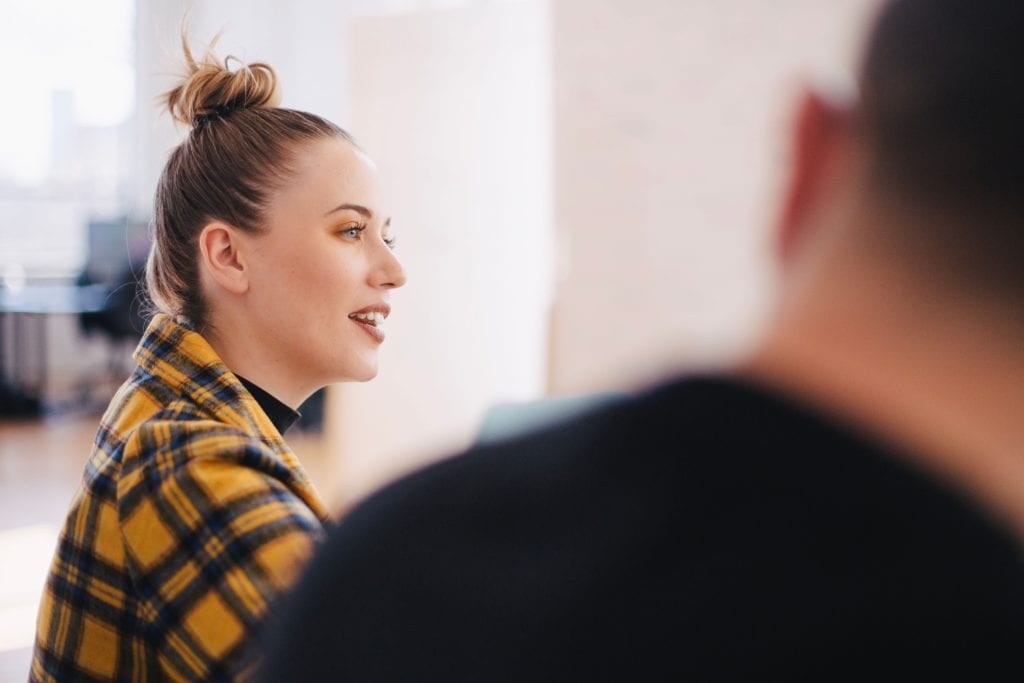
Number two is what is a piece of advice that you got and you will never forget?
It’s what I shared with your readers, “Throw away your stopwatch and get a compass. It’s more important where you’re going than how fast you get there.”
Number three is anything you wish you could go back and do differently?
In my younger years, I was too abrasive, I was too judgmental. I wish I had listened more and talked less.
Number four is what’s still on your bucket list to achieve?
There are so many. I want to do all kinds of cool stuff. I want to go to all kinds of places. I don’t know about you, the older I get the less stuff I want and the more experiences I’m after. I want to go to Fiji. I’ve been to Bali. I love to travel; I love to go to some interesting places. More importantly, I want my work to matter. I want the books and stuff to make a difference.
David, thank you for joining us, I know your time is valuable and that is why in the name of our listeners we’ll forever be grateful for sharing some of your time with us.
It’s my pleasure. Thanks for having me it was great to be with you.
Thank you.
Links Mentioned
- David Nour
- Relationship Economics
- ConnectAbility
- Co-Create
- Give and Take
- Leaders Eat Last
- Curved Benders
- www.PtexGroup.com/podcast
- What Got You Here Won’t Get You There
- http://www.NourGroup.com/
- https://www.YouTube.com/watch?v=p4mdwYQEDsI
- https://YouTu.be/O8pd6lKB-fA
About David Nour
 David Nour has spent the past two decades being a student of business relationships. In the process, he has developed Relationship Economics® – the art and science of becoming more intentional and strategic in the relationships one chooses to invest in. In a global economy that is becoming increasingly disconnected, The Nour Group, Inc. has worked with clients such as Hilton, ThyssenKrupp, Disney, KPMG and over 100 other marquee organizations in driving profitable growth through unique return on their strategic relationships.
David Nour has spent the past two decades being a student of business relationships. In the process, he has developed Relationship Economics® – the art and science of becoming more intentional and strategic in the relationships one chooses to invest in. In a global economy that is becoming increasingly disconnected, The Nour Group, Inc. has worked with clients such as Hilton, ThyssenKrupp, Disney, KPMG and over 100 other marquee organizations in driving profitable growth through unique return on their strategic relationships.
Nour has pioneered the phenomenon that relationships are the greatest off-balance sheet asset any organizations possess, large and small, public and private. He is the author of ten books translated in eight languages, including the best selling Relationship Economics – Revised (Wiley), ConnectAbility (McGraw-Hill), The Entrepreneur’s Guide to Raising Capital (Praeger), Return on Impact (ASAE), and the forthcoming CO-CREATE: (St. Martin’s Press), an essential guide showing C-level leaders how to optimize relationships, create market gravity, and greatly increase revenue. Learn more at www.NourGroup.com.


